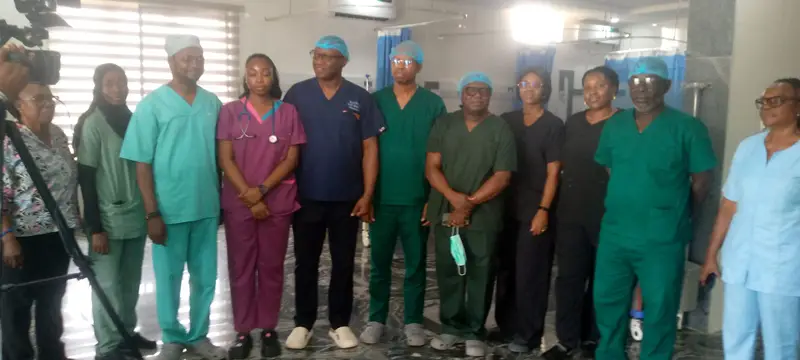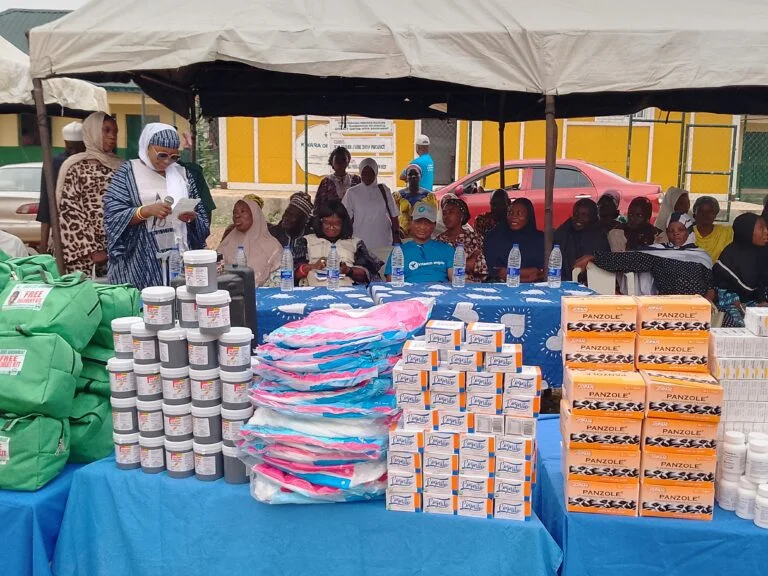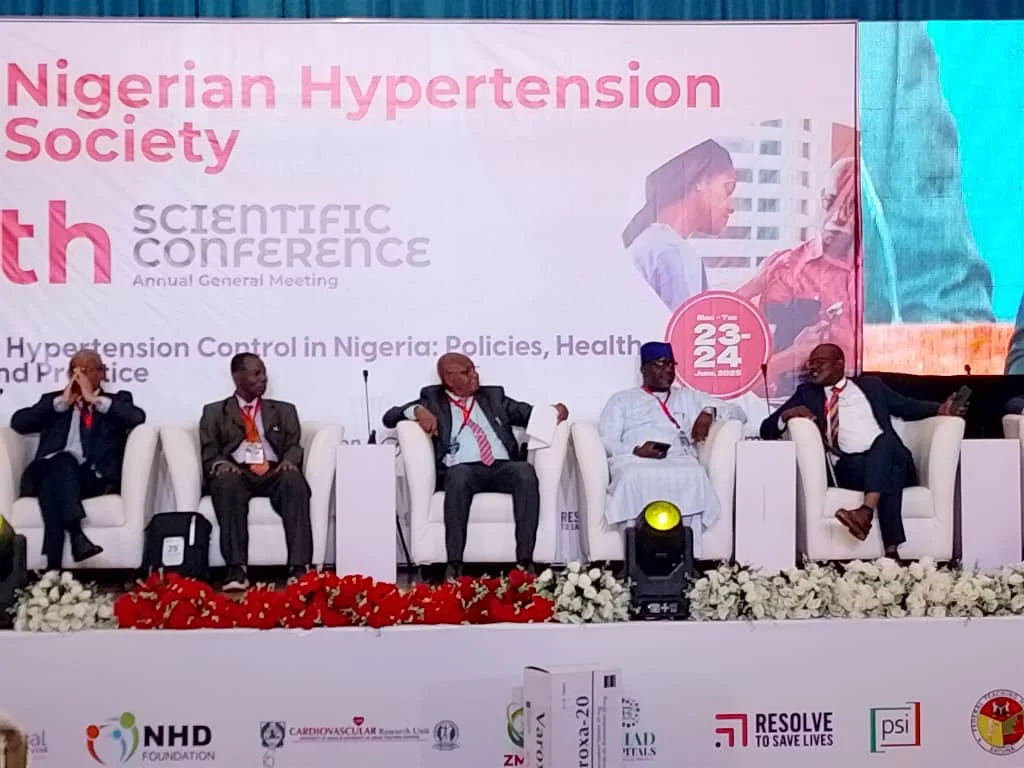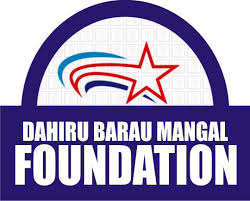206 total views today
By Vivian Ihechu
The Lagos State Commissioner for Health, Prof. Akin Abayomi, says the state is on the verge of making history, positioning itself to become the first West African geopolitical zone to eliminate malaria.
This, Abayomi says, will not be through a vaccine or genetically modified mosquitoes, but by employing “simple common sense” medical practices and a robust public health strategy.
This ambitious goal is driven by the state/ministry and Prof. Wellington Oyibo, Director of the Centre for Transdisciplinary Research for Malaria and Neglected Tropical Diseases.
The News Agency of Nigeria (NAN) reports that for decades, malaria has been a prevalent health challenge across Africa.
Malaria is a life-threatening disease caused by parasites that are transmitted to people through the bites of infected female Anopheles mosquitoes, the World Health Organisation (WHO) says.
According to it, there is an estimated 236 million malaria cases (95 per cent of global cases) and 590,935 malaria deaths (97 per cent of global deaths) in African member states in 2022.
Abayomi said there was need to get malaria out of the region.
He said this at the Study Kick-Off of Pathway to Pre-Elimination and Digitisation Project in Lagos State.
Its focus is on Malaria Rapid Diagnostic Test and Microscopy Comparative Study & Assessment of PPMVS’ Capacity to Manage Malaria and Febrile Illnesses.
“It is very, very important that we do that once and for all,’’ he said.
The commissioner said, “Lagos has diligently waged a “war against malaria” for the past 20 years.
“The cumulative efforts have yielded remarkable results,” he noted.
According to him, malaria prevalence among fever patients has plummeted from 15 per cent to 20 per cent to just about one to two per cent.
“This data spurred Gov. Sanwo-Olu to back a strategy aimed at achieving malaria elimination within the state.
“Where malaria used to be 20 per cent to 15 per cent of people with fever, it is now down to between one per cent and two per cent, meaning that our strategy is working.
“This significant reduction prompted a bold decision from Gov. Sanwo-Olu.
“When we got this data, we took it straight to His Excellency, Mr Governor.
“Commissioner for Health, do it,” Abayomi recounted the governor as saying, highlighting the strong political will behind this groundbreaking initiative.
The core of this strategy tagged “test, treat, and track,” moves beyond the traditional focus solely on treating malaria.
“Instead, it prioritises accurate diagnosis of the actual cause of fever, which, in Lagos, is now rarely malaria.
“A significant component of the strategy involves transitioning from outdated diagnostic methods, while microscopy has been the “gold standard”.
Abayomi, however, noted its limitations in low-resource settings due to requirements for good equipment, skilled personnel, and electricity, leading to “very big mistakes.”
“The state is therefore embracing Rapid Diagnostic Tests (RDTs), which are highly accurate, more efficient, cheaper, and more feasible for widespread use across all healthcare settings, from community pharmacies to primary healthcare centres (PHCs).
“A comparative study led by Professor Oyibo will further validate RDTs’ superiority.
“The “track” element of the strategy is focused on environmental interventions”.
The commissioner clarified that fumigation was not the primary solution; rather, “the emphasis is on good environmental sanitation.
“This includes eliminating stagnant water, clearing blocked drainages, and properly covering water collections in homes—measures that directly prevent mosquito breeding.
“If a rare malaria case is detected, it triggers an investigation into the immediate environment to identify and eliminate the source of transmission”.
Oyibo said the ambitious goal was being driven by a strategic shift in fever management and a commitment to evidence-based practices.
The consultant medical parasitology and Study Coordinator affirmed that for decades, malaria had been synonymous with fever across Africa, often leading to misdiagnosis and inappropriate treatment.
“Whenever you talk about Africa, the thing that comes to mind is malaria and poverty and famine,”
“However, data from Lagos now indicates a dramatic reduction in malaria prevalence.
“The evidence we are seeing right now shows that Lagos State has come to a place where, from all indications, if you say you have fever, it’s not likely going to be malaria in over 90 per cent of the cases,” he asserted.
“This critical insight underpins the state’s new “test, treat, and track” approach,” he said.
Oyibo stressed the dangers of treating fevers as malaria without proper testing, citing severe consequences, especially for children.
“If it is a child that has pneumonia… and you now give anti-malaria medicine without doing a test. What will happen to that child? That child will die quickly of pneumonia,” he warned.
“The strategy emphasises testing for malaria first.
“If negative—which is now the most common outcome—healthcare providers are then mandated to investigate other potential causes of fever.
“This commitment to accurate diagnosis ensures “our quality of care is not being done fully at all,” Oyibo said.
“The initiative also seeks to streamline diagnostic methods, with a study currently underway to validate the superiority of Rapid Diagnostic Tests (RDTs) over traditional microscopy for widespread use.”
Oyibo highlighted the crucial role of political will from the Lagos State Government, describing it as “one of the greatest commitments we have from Lagos State, which we are still looking for in Africa.”
“This determination, combined with support from partners like the WHO and National Malaria Elimination Programme, is propelling Lagos towards a future where malaria is no longer a major public health challenge.
“Lagos State can drive that now. It is the only state in Nigeria that has reached that,” he noted.
He explained that “Lagos aims to prove that by leveraging accurate data, implementing evidence-based practices, and fostering a disciplined approach to medicine, malaria can be eliminated, setting a powerful precedence for the rest of the continent.” (NAN)(www.nannews.ng)
Edited by Kevin Okunzuwa














